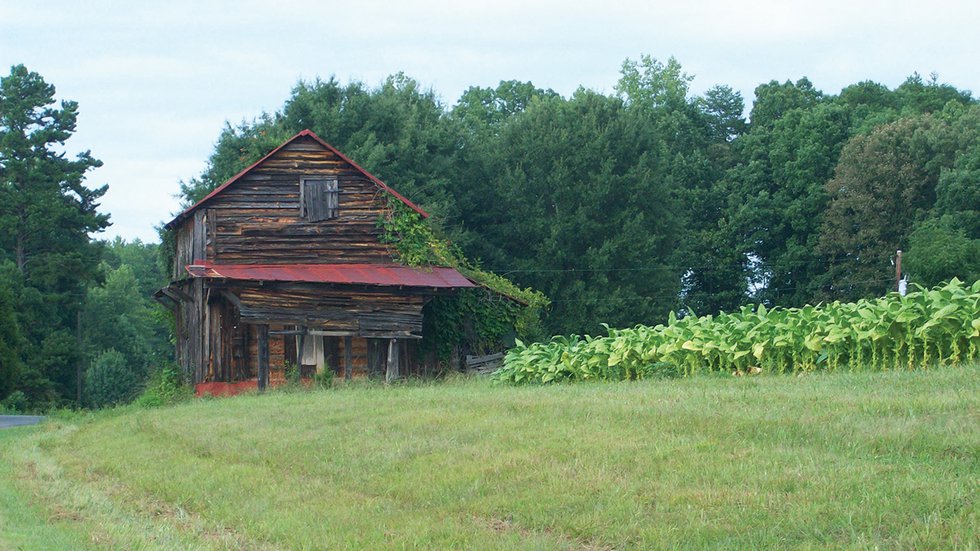The “Equalizing Factor”

Debbie Easter

Debbie Easter
Debbie Easter deals in high-risk investments. Like portfolio managers, Easter wants to put her clients in the best positions to maximize value, through diversification of assets. But instead of dealing with stocks, bonds, futures or real estate, Easter’s business is Thoroughbred racehorses. As a bloodstock agent, she helps people buying and selling horses, puts together partnership deals and offers advice. Instead of sitting in an office, Easter travels to New York, Lexington and Florida, scouring sales in search of talent and value.
Here’s what makes the Thoroughbred industry interesting: The most expensive horses, those with impeccable bloodlines, aren’t always the biggest stars. Horses are animals and athletes, and some have more heart and spirit than others—an intangible inner fire that has no paper documentation. “That’s the great thing about this business,” says Easter. “There’s an equalizing factor. You can throw all the money in the world at it and still not be at the top of the game, because you’re dealing with animals and Mother Nature. Sometimes it’s just a feeling, and that’s the one you buy.”
Easter, who lives in Free Union, got her start in breeding as a partner with equine veterinarian Dr. Reynolds Cowles, of Blue Ridge Equine, and his wife, Evie. In the 1990s, they founded Albemarle Stud, which at one time was the largest stud farm in Virginia, delivering on average 115 foals a year.
When the Cowles closed Albemarle Stud, Easter went to work for Ken Luke of Eldon Farm in Keswick in 2005. Luke, who lives in Atlanta, was interested in pinhooking, a term that refers to buying young horses and selling them the following year for profit. Easter searched the sales, looking for quality horses. Every year, she and Luke would go to Saratoga and buy one or two nice foals, some of which they sold for nearly $1 million the following year. In pinhooking, buyers take on the risk of a live investment in the hope that it will appreciate.
One of their biggest pinhook deals centered around a mare named Chimichurri. Easter bought the mare off the track in 2005, in a partnership with Taylor Made in Kentucky, for $600,000. Easter and Luke bred her to the stallion Vindication and sold her first foal for $750,000. They bred her again to the stallion Unbridled’s Song (leading American sire by earnings and stakes winners) and sold her foal from that union in 2006 for $2.1 million. This year, her foal sold for $750,000.
In 2007, Easter went out on her own. In November, she bought the now 4-year-old filly Dream Rush at the Fasig-Tipton sale in Kentucky, for $3.3 million for client Halsey Minor. Originally from Charlottesville, Minor lives in California and recently purchased Carter’s Grove Plantation near Williamsburg with plans to restore it and possibly keep horses there. Dream Rush won six out of nine starts, four of which were graded stakes races. (Grade 1 races are the best and hardest races against the best horses, with the biggest prize money.) She raced once in the Breeder’s Cup and placed fifth. In all, she has earned more than $600,000 and was a 2007 finalist for the Eclipse Award for Female Sprinter.
Easter’s expectations for Dream Rush this year are high. The plan is to run her in the Grade 1 Humana Distaff at Churchill Downs on Derby Day. “She ought to be one of the best,” says Easter. “We hope we have the best sprinting filly in the country this year.” If that proves to be the case, Easter aims to use her as a foundation mare for a breeding business.
But, while a good running mare has a better chance to produce stakes horses, Easter cautions that’s not always the case: “This business is not too different from buying and selling stocks,” she says, “except the stock happens to have four legs. You want to build value depending on whether your goal is to breed, sell or race.” A horse that’s hot today may not be hot tomorrow, depending on what’s happening at the racetracks. Dealing with live animals is risky. In March, for example, Dream Rush kicked a wall in her stall, resulting in a swollen ankle and a few days of lost training. As Easter says, “You are buying a dream—the hope that you have the next superstar.”
In the last year, Easter has been working closely with Wick and Carter McNeely of Free Union. Breeders for more than 30 years, they keep horses at their Chapel Springs Farm and at Morrowdale, where they live. Easter helps the couple with the day-to-day management of their horse business.
The McNeelys have bred a yearling filly with incredible promise. The filly, unnamed as yet, is the half-sister to the dam of Indian Blessing. Indian Blessing was the undefeated 2-year-old champion filly that won the Breeder’s Cup Juvenile in 2007. In a major upset, she was beaten at the Fair Grounds Oaks in Louisiana this spring by Proud Spell, another filly that will be one of the favorites to win the Kentucky Oaks, the 3-year-old filly race on the Friday of Derby weekend.
In spite of that defeat, Easter has positioned the McNeelys well. Because of the success of Indian Blessing, they have a yearling with great potential. Now the McNeelys must decide whether to sell the horse based on her impressive pedigree, or race her and hope that she wins. If she does, her value will skyrocket—a fine pedigree validated by racing wins is the holy grail, the key to building top value. But if she races poorly, her value will fall. Sell now or race her? It’s a tough decision that owners and breeders must make regularly. For now, the McNeelys are leaning towards racing her, to give her the chance to show her mettle.
A large part of Easter’s business deals with putting together partnerships. One of them is Wahoo Partners, a family-oriented partnership of mostly Virginians. Wahoo Partners bought shares in Sequoia Racing, a partnership in Kentucky, and purchased 15 top yearling colts in 2007. Now 2-year-olds, the horses are with the top trainers. The hope is that some of them will possess Derby quality, but the ultimate goal is to produce a top stallion. Wahoo Partners also bought five horses to pinhook in the hope they can generate enough cash to cover the Sequoia project. “Unlike stocks,” says Easter, “you can feel and touch a horse, and go to the biggest tracks like Saratoga, Keeneland, Belmont, the Derby, and stand in the paddock [with them]. It’s a great thrill!”
When she’s not on the road, Easter spends part of her day checking on the horses at Chapel Springs Farm. Cumberland, one of her favorite horses, is there on a lay-off until he returns to training in Maryland. Ready to come in the barn, he paces at the fence, waiting for Easter to bring him in. As she leads him to the barn—against a background of green pastures, tidy fences and mountains rising in the distance—the scene is timeless. From a distance, it could’ve been any horse at any time, perhaps War Admiral, Citation, Secretariat. Even the legendary ones are just horses, and all started this way. But for those who are passionate about Thoroughbred horses and the sport of racing, every young racehorse represents untold potential and the power of dreams.
BACK TO The Midas Touch
OR READ THE PROFILES:
Debbie Easter
Originally published June 2008









